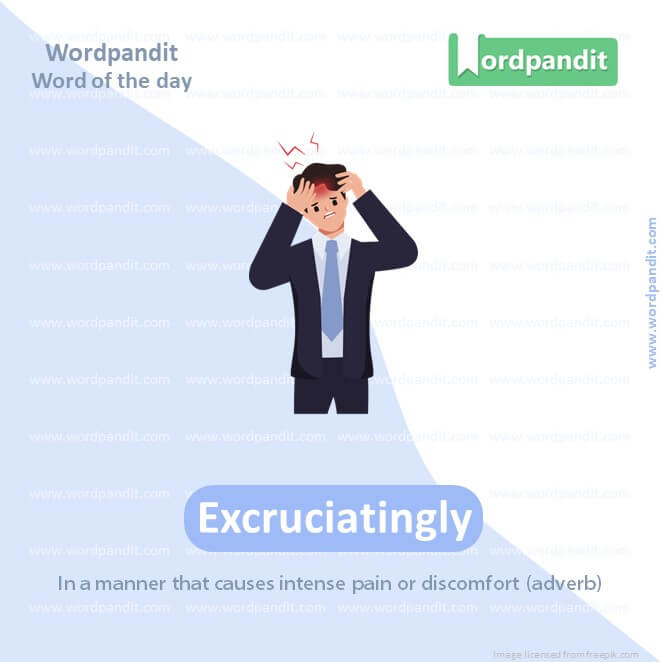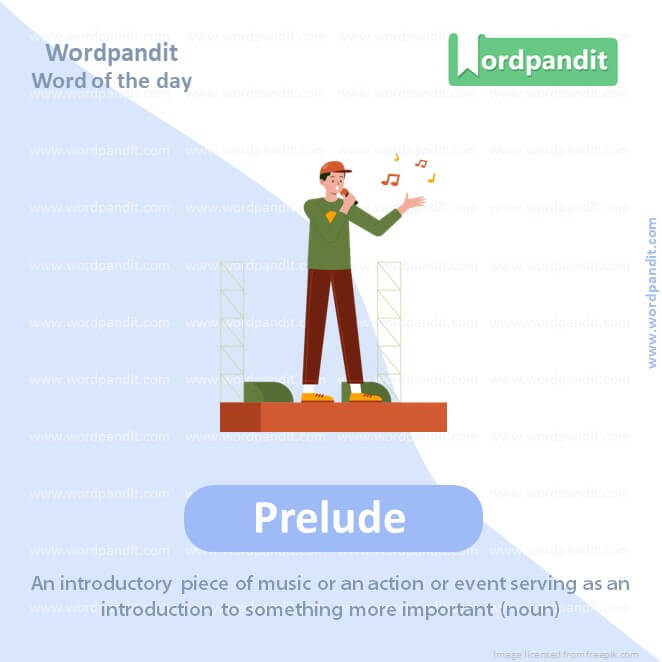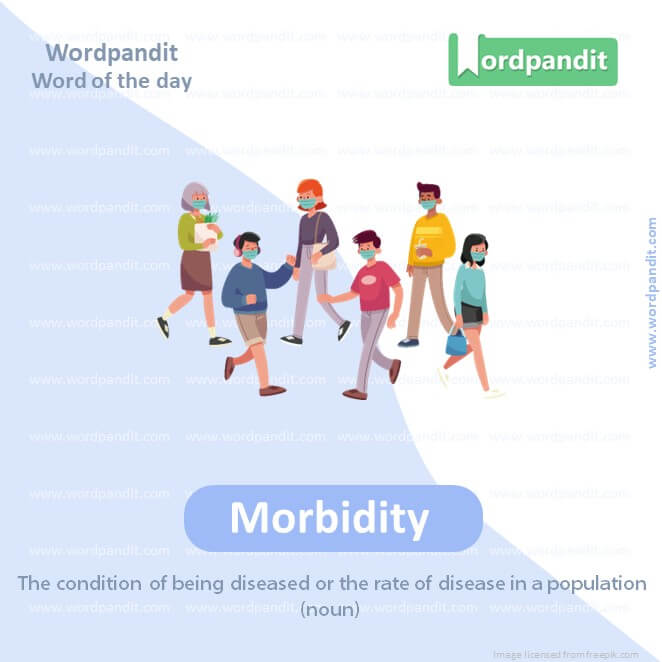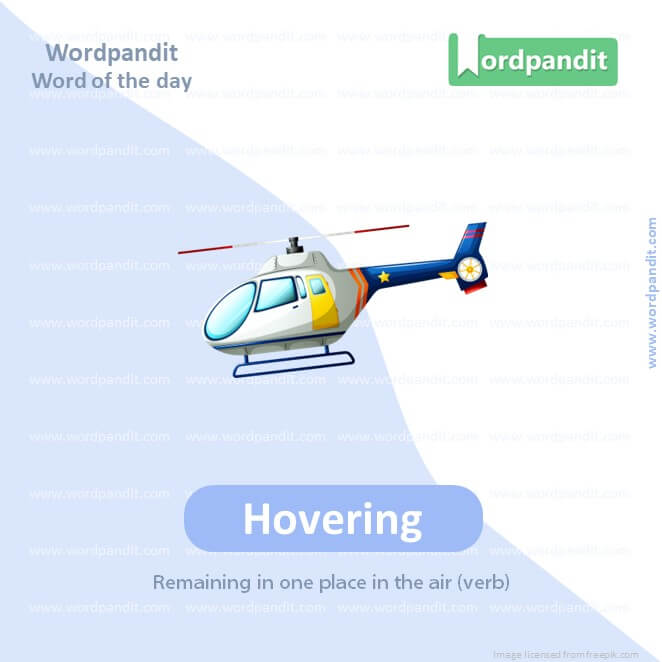Daily Vocabulary Words: Enhance Your Lexicon with Leading Newspapers & Publications
Welcome to the Daily Vocabulary section at Wordpandit!
Our mission is straightforward: to bring you essential vocabulary words featured in top newspapers and publications worldwide. By focusing on words you’ll encounter in renowned sources, we aim to help you enhance your vocabulary effectively and practically.
Our selection includes words from:
– The New York Times
– The Washington Post
– Scientific American
– BBC
– The Guardian
– Psychology Today
– Wall Street Journal
– The Economist
– The Hindu
– The Times of India
– The Economic Times
– Hindustan Times
– Live Mint
– The Indian Express
– And many more.
We are committed to your vocabulary development. Simply visit this section regularly and explore the daily posts. This is your go-to repository for commonly used words, providing significant practical benefits by familiarizing you with vocabulary from the leading publications listed above.
Make it a habit to visit our website daily and expand your lexicon with words from top newspapers and publications.

WORD 1: EXCRUCIATINGLY
CONTEXT: In a contest of excruciatingly small margins, Rohit Sharma’s men prevailed with a seven-wicket victory with speedsters Jasprit Bumrah and Mohammed Siraj being the wreckers-in-chief of the South African line-up.
SOURCE: The Hindu
EXPLANATORY PARAGRAPH: Imagine if you touch something very hot, and it hurts a lot. When something is “excruciatingly” painful, it’s like that feeling but even stronger. It means something is so very, very painful or uncomfortable that you really want it to stop.
MEANING: In a manner that causes intense pain or discomfort (adverb)
PRONUNCIATION: eks-KROO-shee-ay-ting-lee
SYNONYMS: intensely, severely, terribly, immensely, unbearably
USAGE EXAMPLES:
1. The sunburn was excruciatingly painful.
2. She waited excruciatingly long hours at the airport.
3. The headache was excruciatingly bad this morning.
4. He described the news as excruciatingly sad.
WORD 2: OBNUBILATE
CONTEXT: Prevention is better than cure, but taking this adage to the extreme in the practice of medicine might obnubilate the very purpose of treating patients to recovery, and even turn out to be counter-productive.
SOURCE: The Hindu
EXPLANATORY PARAGRAPH: When you play hide and seek and cover your eyes with your hands, you can’t see anything, right? That’s a bit like “obnubilate.” It means to make something hard to see or understand, just like covering your eyes makes it hard to see.
MEANING: To make something unclear or difficult to understand (verb).
PRONUNCIATION: ob-NOO-bi-layt
SYNONYMS: obscure, cloud, confuse, blur, muddle
USAGE EXAMPLES:
1. The fog will obnubilate the path, making it hard to see.
2. His explanation only served to obnubilate the subject further.
3. The heavy rain could obnubilate the driver’s vision.
4. They tried to obnubilate their plans from the competitors.

WORD 3: ITALICISES
CONTEXT: The Health Ministry has thrown up startling statistics, but more importantly, examining the minutiae italicises key issues that have been flagged by experts for years now.
SOURCE: The Hindu
EXPLANATORY PARAGRAPH: When you see words in a book or on a computer that are slanted to the right, those words are “italicised.” It’s like tipping the letters over a little so they look special or important.
MEANING: Writes or prints text in a slanted style to emphasize it (verb)
PRONUNCIATION: i-TAL-i-siz-es
SYNONYMS: slant, tilt, emphasize, highlight, stylize
USAGE EXAMPLES:
1. The book italicises important words to grab your attention.
2. She italicises her comments in the document for emphasis.
3. Instructions are often italicised for clarity.
4. The names of ships are usually italicised in writing.

WORD 4: PRELUDE
CONTEXT: In the larger scheme, India drew the T20s at 1-1 and won the ODI series at 2-1, which became the prelude to the Tests.
SOURCE: The Hindu
EXPLANATORY PARAGRAPH: Think of when you start playing with your toys by setting them all out before the actual play begins. A “prelude” is like that beginning part — it’s something that happens first to start off something bigger, like a story or a music piece.
MEANING: An introductory piece of music or an action or event serving as an introduction to something more important (noun)
PRONUNCIATION: PREL-yood
SYNONYMS: introduction, prologue, beginning, opening, start
USAGE EXAMPLES:
1. The musical concert opened with a beautiful piano prelude.
2. The short speech served as a prelude to the awards ceremony.
3. Cloudy skies were a prelude to the storm.
4. The meeting started with a prelude about the company’s achievements.

WORD 5: MORBIDITY
CONTEXT: It is precisely the sort of misuse and overuse of antimicrobials, as revealed by the survey, which cause the development of drug-resistant pathogens that in turn pose great risk to life and exacerbate morbidity.
SOURCE: The Hindu
EXPLANATORY PARAGRAPH: When people get very sick and it’s serious, doctors talk about “morbidity.” It’s a word they use to describe how many people are sick with certain diseases in a place.
MEANING: The condition of being diseased or the rate of disease in a population (noun)
PRONUNCIATION: mor-BID-i-tee
SYNONYMS: illness, sickness, unhealthiness, disease, ailment
USAGE EXAMPLES:
1. The morbidity rate of the flu increases during winter.
2. They studied the morbidity of heart disease in different areas.
3. Morbidity statistics help public health officials.
4. The report detailed the morbidity associated with poor air quality.
WORD 6: CONGEALED
CONTEXT: It is common knowledge that power in all political parties has congealed in the hands of a few individuals.
SOURCE: The Hindu
EXPLANATORY PARAGRAPH: Think about when you put a bowl of soup in the fridge, and it gets thick and jelly-like. That’s what “congealed” means. It’s when a liquid becomes thick or semi-solid, especially when it gets cold.
MEANING: Turned from a liquid to a thick or solid state (verb).
PRONUNCIATION: kun-JEELD
SYNONYMS: thickened, solidified, hardened, coagulated, jelled
USAGE EXAMPLES:
1. The blood had congealed at the site of the wound.
2. The gravy congealed on the plate as it cooled.
3. Overnight, the gelatin congealed into a dessert.
4. The cold temperature congealed the oil in the pan.
WORD 7: REORIENT
CONTEXT: Party members must use their influence to restrain their own party’s excesses and reorient focus towards substantive issues.
SOURCE: The Hindu
EXPLANATORY PARAGRAPH: Imagine you are spinning around with your eyes closed and when you stop, you need to find where you are looking. “Reorient” means to find your way again or to adjust to a new situation or place.
MEANING: Adjust or align oneself or something in a new or different way (verb).
PRONUNCIATION: ree-OHR-ee-ent
SYNONYMS: readjust, realign, reposition, recalibrate, redirect
USAGE EXAMPLES:
1. He had to reorient himself after moving to the new city.
2. The company will reorient its focus towards digital marketing.
3. After the break, she needed to reorient herself to the project.
4. Maps help hikers to reorient themselves in the wilderness.

WORD 8: HOVERING
CONTEXT: It is never an ideal long-term strategy. Rohit, Virat Kohli, R. Ashwin and R. Jadeja, are all hovering around the mid to late thirties mark, and their gradual walk towards the twilight seems inevitable.
SOURCE: The Hindu
EXPLANATORY PARAGRAPH: Imagine a hummingbird flying in one spot without moving forward or backward. That’s called “hovering.” It means staying in one place up in the air.
MEANING: Remaining in one place in the air (verb)
PRONUNCIATION: HUV-er-ing
SYNONYMS: floating, hanging, suspending, drifting, lingering
USAGE EXAMPLES:
1. The helicopter was hovering above the building.
2. A drone was hovering near the window.
3. He kept hovering around the kitchen, smelling the pie.
4. Birds were hovering over the lake looking for fish.
WORD 9: SPECTACULARLY
CONTEXT: This strategy not only renders the Opposition complicit in the breakdown of communication but is also spectacularly ineffective in that it focuses the Opposition’s attention on tactics with limited electoral relevance.
SOURCE: The Hindu
EXPLANATORY PARAGRAPH: Think of the brightest, most colorful fireworks you’ve seen. When something is “spectacularly” good or beautiful, it’s like those fireworks — really amazing and wonderful to see or experience.
MEANING: In an impressive, beautiful, or dramatic manner (adverb).
PRONUNCIATION: spek-TAK-yoo-lur-lee
SYNONYMS: remarkably, wonderfully, magnificently, stunningly, gloriously
USAGE EXAMPLES:
1. The show ended spectacularly with a fireworks display.
2. She performed spectacularly at the concert.
3. The athletes competed spectacularly.
4. The sunset was spectacularly beautiful.
WORD 10: BELLIGERENT
CONTEXT: The demands of unthinking and belligerent fealty can only exacerbate partisanship and cynicism.
SOURCE: The Hindu
EXPLANATORY PARAGRAPH: Imagine if two kids want the same toy, and instead of sharing, they start yelling and wanting to fight over it. That’s being “belligerent.” It means acting very ready to fight or argue.
MEANING: Showing a readiness to fight or argue (adjective).
PRONUNCIATION: buh-LIJ-er-ent
SYNONYMS: aggressive, hostile, combative, antagonistic, confrontational
USAGE EXAMPLES:
1. The belligerent customer shouted at the store manager.
2. He took a belligerent stance in the debate.
3. Her belligerent attitude made the discussion difficult.
4. The belligerent tone in his voice was intimidating.
Vocabulary Synonyms
In the intricate weave of language learning, ‘vocabulary synonyms’ emerge as a key element that adds depth and variety to expression. These different words with similar meanings enrich our vocabulary, enabling us to communicate with precision and clarity. However, grasping ‘vocabulary synonyms’ successfully warrants a systematic approach.
When approaching ‘vocabulary synonyms’, context is your compass. Engage with various reading materials like novels, newspapers, and digital content to explore and understand how these synonyms are used in different situations. This exposure will fortify your comprehension of ‘vocabulary synonyms’ and their usage nuances.
Employing memory-enhancing techniques can cement your grasp on ‘vocabulary synonyms’. Employing flashcards is an effective method where one side contains the word you know, and the other side has its synonyms. Also, creating mind maps, linking the known word to its various synonyms, can be an engaging way to learn ‘vocabulary synonyms’.
To master ‘vocabulary synonyms’, take an active role in application. Regular conversations, written communications, digital interactions – all of these offer ample opportunities to utilize learnt synonyms. This practice refines your application and accelerates internalization of ‘vocabulary synonyms’.
Embracing language exchange platforms or engaging with native speakers can provide invaluable feedback on the usage of ‘vocabulary synonyms’. This interaction can further enhance your understanding of the cultural idiosyncrasies of word usage.
In conclusion, learning ‘vocabulary synonyms’ is a rewarding pursuit that adds layers of complexity to your language skills. A thoughtful blend of diversified resources, memory tools, practice, and interactive learning can make the task of mastering ‘vocabulary synonyms’ an enjoyable and fruitful journey. Every synonym learnt paints your vocabulary with different shades of understanding, making your language canvas all the more vivid and spectacular!













